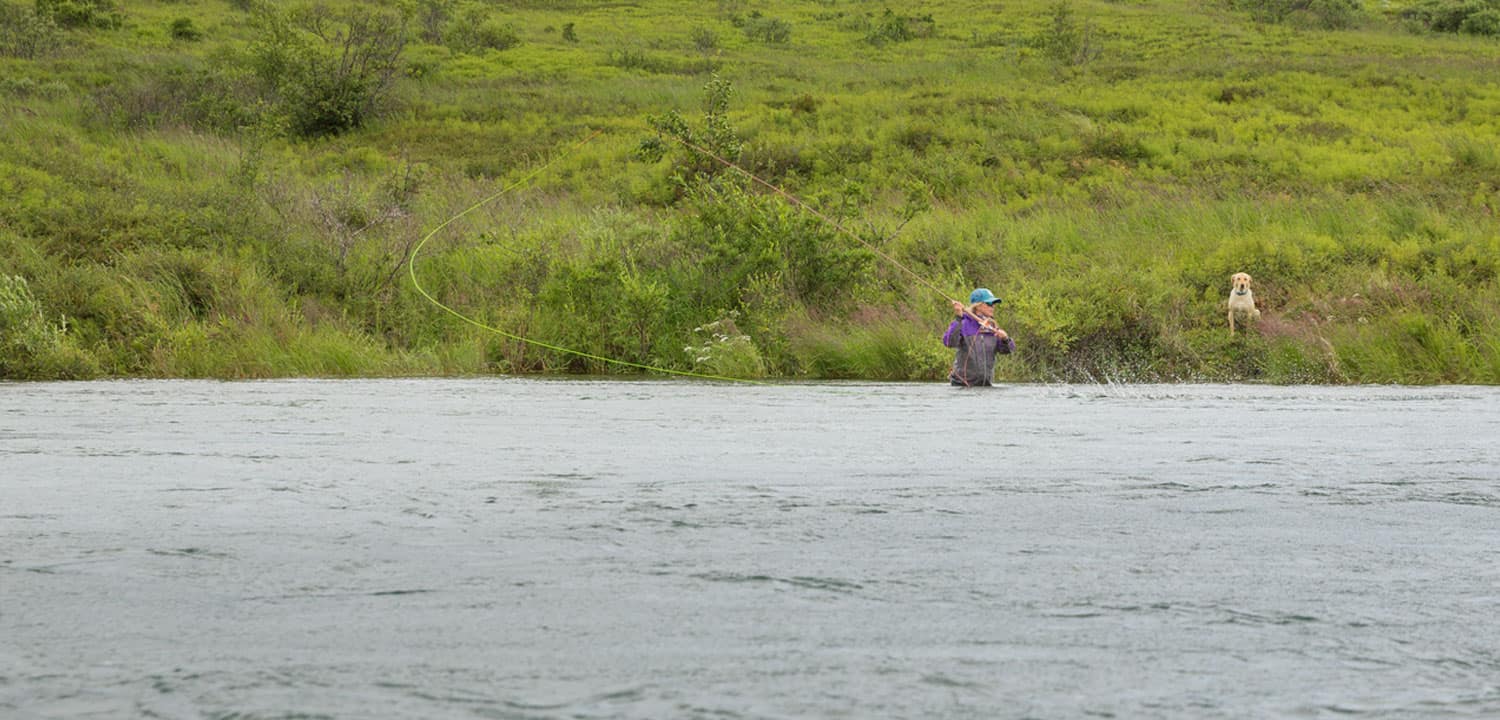The owner of Frigate Adventure Travel on salmon conservation, sharing meals, and using what moves you.
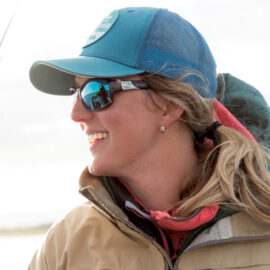
By this time of year, Kate Crump has usually had a month or two to decompress between guiding in Alaska’s Bristol Bay and winter steelhead season at her Oregon fishing lodge.
This year, no break. That’s because Crump—an intensely busy fishing guide, forest activist, brand ambassador, and owner of Frigate Adventure Travel—added one more responsibility, as the new owner of a lodge on Alaska’s Naknek River. She’ll be welcoming new guests here starting in June 2022. And that means she’s socked away in Bristol Bay all winter, navigating cabin retrofitting in subzero conditions.
“There are a lot of complications,” Crump laughs. “Like how do you get a cabin warm enough at negative nine to get the paint to dry?”
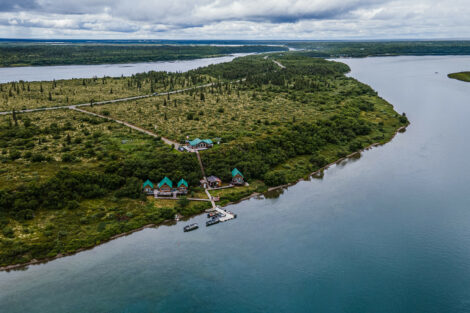
The payoff is what has driven Crump’s entire career in angling: sharing wild rivers with guests. These connections can change lives, Crump says, and they can also save these special places.
“One of the best ways to get people to take action, obviously, is by taking them into the wild, onto these rivers,” she says. “Then we come home and literally break bread: share a meal, take it all in together, and solidify those connections through reflection.”
One of the best ways to get people to take action is by taking them onto these rivers,” Crump says. “Then we come home and literally break bread: share a meal, and solidify those connections through reflection.”
Now, as a Wild Salmon Center Ambassador, Crump hopes to break through some of the “noise” that she says can gum up unified action in the angling community, too, including on the rivers of Oregon’s North Coast where she’ll be guiding steelheading trips this winter.
“It’s a no-brainer for me to use my position to spread the word,” Crump says. “Salmon conservation isn’t political. There is room for all beliefs in this work, because when it comes down to it, you can’t argue with clean water.”
Below, Crump shares more about her fly fishing journey, including the magical day that launched her work as a Wild Salmon Center Ambassador.
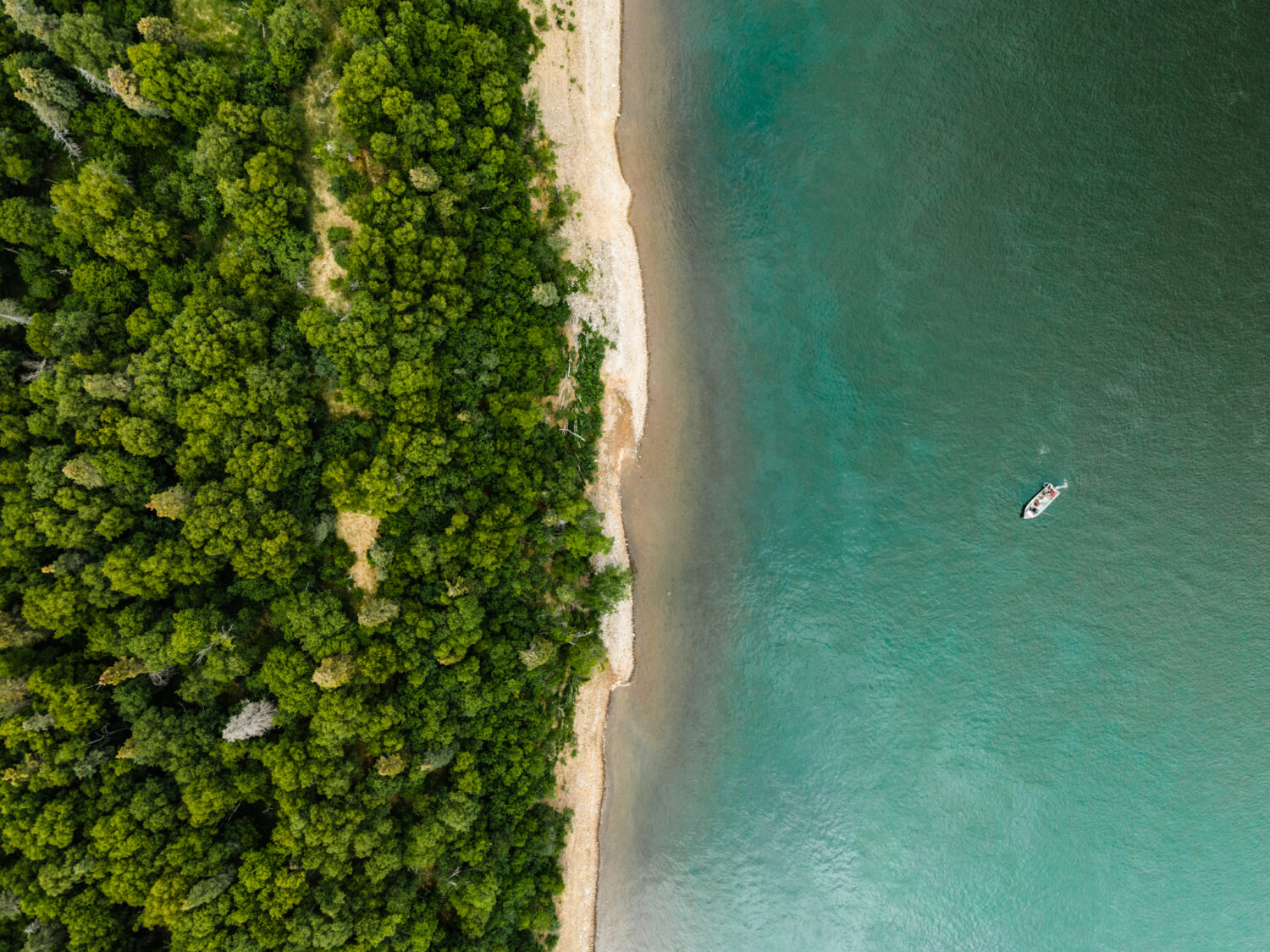
KATE CRUMP, IN HER OWN WORDS:
We love to host people, share places. Our guests take it all in, but I think it really hits their souls later—at the end of the day or even later. I get messages from people post-fact with those thank yous.
I’m on the water all the time, so I forget I’m bringing people to places where they never go and never would, unless we take them. I forget how little time people truly spend in nature. It’s so good for us to have those moments.
I grew up on a farm on the East Coast and always loved the outdoors. I came west and fell in love with Washington, and the rain. Something just told me it was home. Shortly after moving here, my friends took me salmon fishing. Again, I knew that I was home—that I’d be doing this for the rest of my life. I didn’t even catch anything! I was just standing in this crystal clear river, surrounded by old growth and schooling fish.
I’ve spent a lot of time without clarity in my life. So those few moments of clarity were so intense, I listened to them. I’m so grateful for them. Between those moments, there were a lot of clouds. I wouldn’t want anyone to think that I’ve always had clarity. I certainly never thought I’d be guiding in Alaska, or owning a lodge. Two lodges! What happened was, I worked in a fishing shop for many years and got tired of hearing everyone’s stories about brown bears and big rainbow trout. I wanted my own stories.
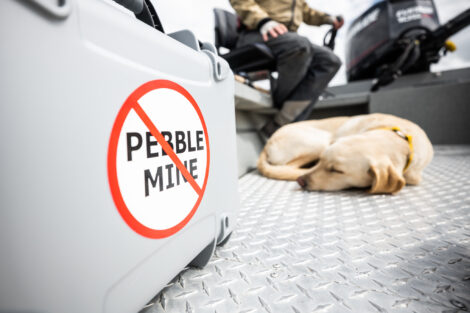
With activism, my first aha moment was when I came to Bristol Bay to be a fishing guide. See, when I first started fishing, the Skagit was open, and it was epic. Then shortly after I started, it closed. In Alaska, I saw what the Pacific Northwest was once like: the pristine rivers and thriving runs. I saw what we had lost. And then, when I learned that a giant corporation wanted to take that away in Bristol Bay, it infuriated me. The entire nation can see what we did wrong in the Pacific Northwest, so it blew my mind that we would even consider making those same mistakes in Alaska. That is what spurred me to take action.
The entire nation can see what we did wrong in the Pacific Northwest, so it blew my mind that we would even consider making those same mistakes in Alaska. That is what spurred me to take action.
I had been working on the Defend Bristol Bay campaign since shortly after I started guiding in Alaska 13 summers ago. I had heard about Pebble Mine and realized there was a way for me to use my voice on this issue. I worked with Dr. Sam Snyder in several instances, so when Wild Salmon Center brought Sam onto the team, I was naturally very supportive.
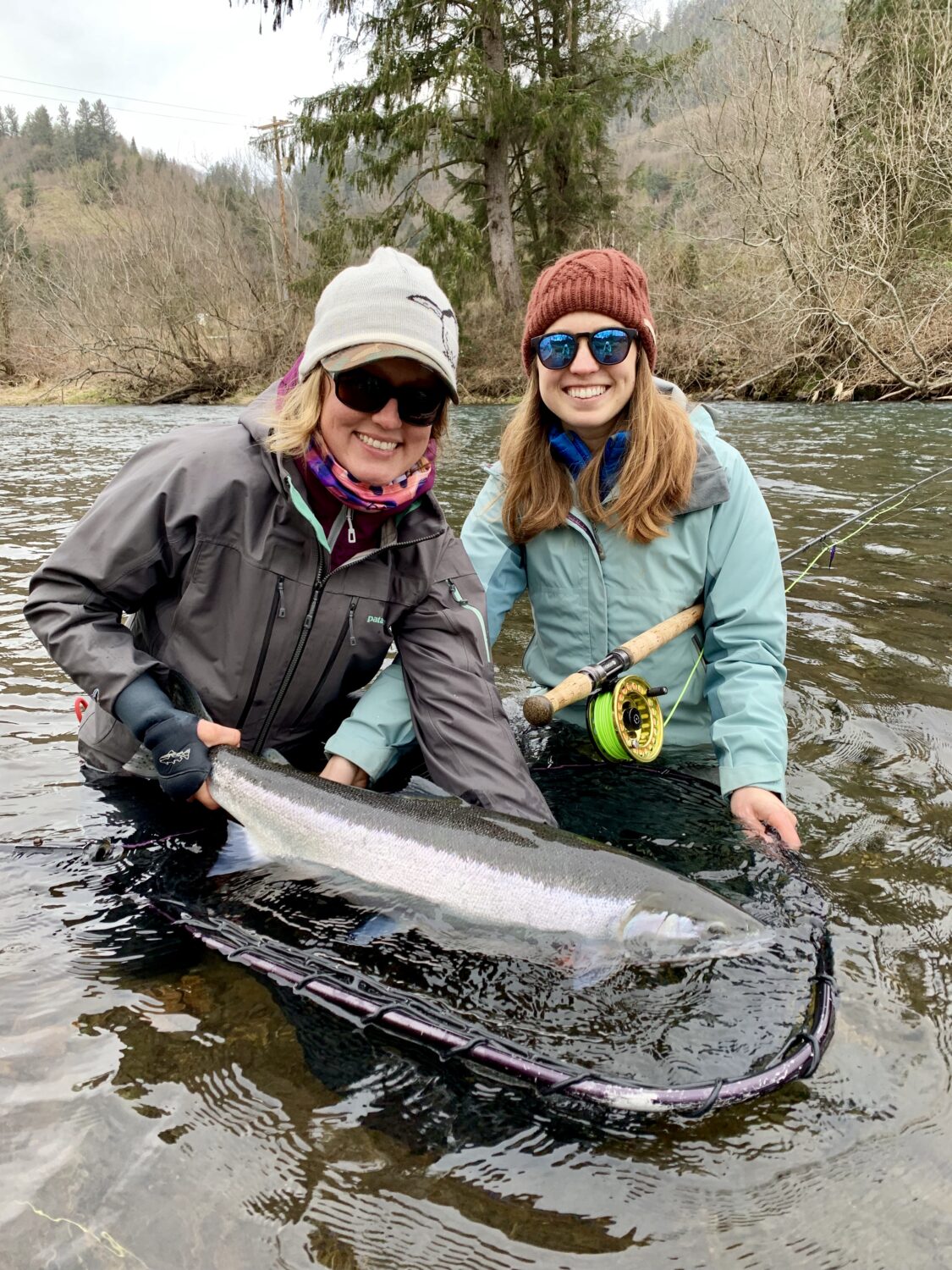
Then one day [WSC Development Director] Kim Kosa and [WSC Development Manager] Audie Paulus came to fish with me [on Oregon’s Trask River]. We had not-great water conditions that day, and it had been a tough year. They had car trouble on the way, so that also was going to be difficult: getting on the water late, in those conditions. I knew we had the odds stacked against us. But I was excited to have that time to learn more about Wild Salmon Center and the work it does. There’s no better place to do that than on the water.
We fished a couple runs, and nothing. Then as we were leaving, Audie caught a fish, on and off. We floated down to the next run and Kim landed one. It was so exciting! And then the next run, Audie hooks one and lands it. Then Kim hooks and lands another. It was just unbelievable! We swing flies and Audie lands another!
It was a magical day that connected us forever. We were the only people on this stretch of river. It felt like fate. To me, those things aren’t happenstance—there was a reason we experienced that. Kim proposed that I become a WSC Ambassador: a platform for people like myself, people who live on the water and see this habitat and depend so greatly on these fish, to elevate our voices on behalf of these rivers. Naturally I was all in.
Kim proposed that I become a Wild Salmon Center Ambassador: a platform for people who live on the water and depend so greatly on these fish to elevate our voices on behalf of these rivers. Naturally I was all in.
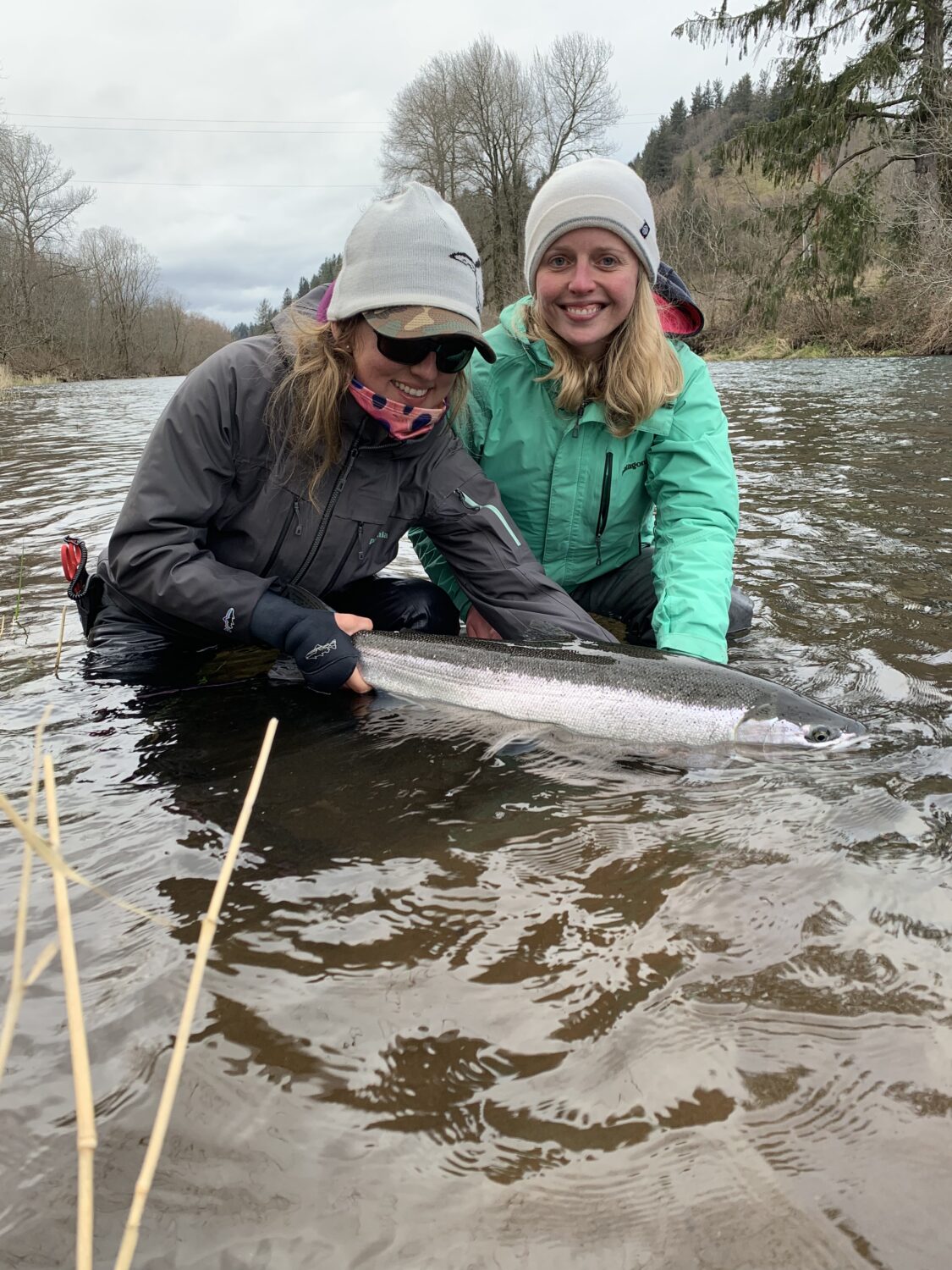
I think that a lot of my colleagues in the guiding community encounter a barrier of entry in how they interact with their watersheds. There’s a lot of noise, even misunderstandings. It’s often just a question of how to get involved, and at what level to participate.
By being a WSC Ambassador, I can help meet them where they are, where they’re willing to get involved—whether that’s financially, or by calling their legislators, etc. Whatever infuriates, invigorates, or motivates them will be different, and that’s ok. Everyone should find what motivates them to protect these places, and use that. Because there is so much under attack.
My friends and my guests, they all see that I don’t have much free time. But I make time for this work. It’s important to let people know that salmon conservation isn’t political. When it comes down to it, you can’t argue with clean water. We all need it. It is, at the end of the day, a completely bipartisan issue. This is everyone’s fight.
Whatever infuriates, invigorates, or motivates them will be different, and that’s ok. Everyone should find what motivates them to protect these places, and use that. Because there is so much under attack.
Hero Image
